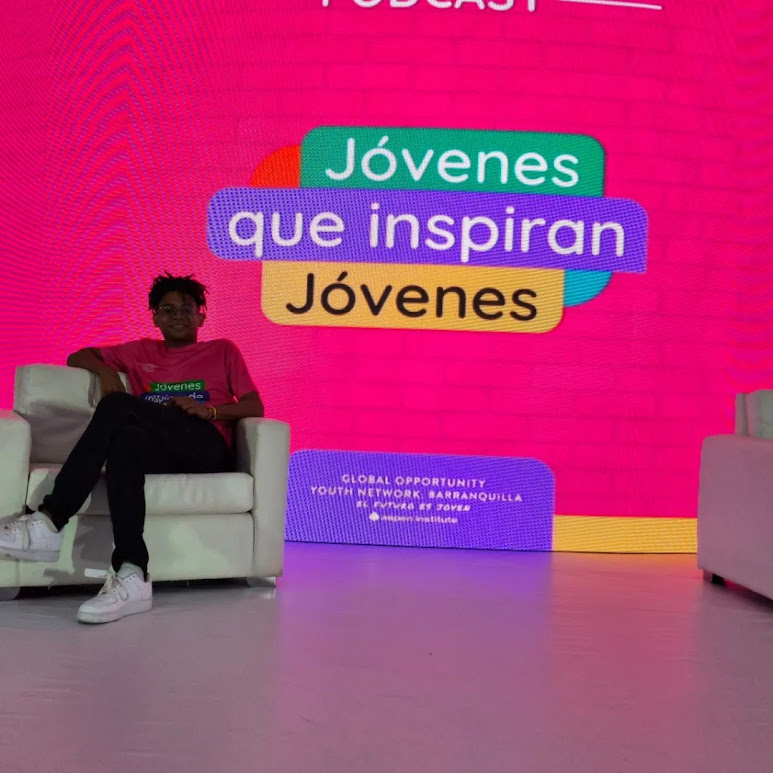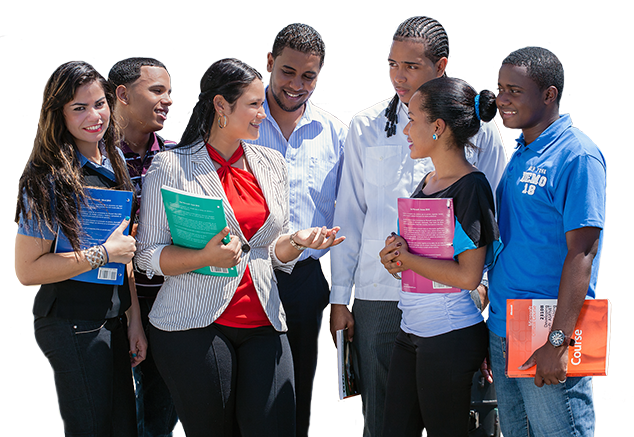By Randal Marquez
Youth Advisory Group (YAG), GOYN Barranquilla
Date: June 24, 2024
Mode: Virtual
Intervention by: Randy Marquez
Issue: “Youth power for an inclusive democracy:
Exploring innovations in civic spaces and governance”
At the annual Democracy Moves convention, I participated virtually, addressing the importance of increasing youth participation in democratic decisions. My intervention focused on the factors that contribute to youth disengagement from these discussions, similar to the reasons that keep them away from economic opportunities. In addition, I highlighted the importance of understanding these challenges within the regional context of Latin America.
Main Points Addressed
1. Low Development of Soft Skills
Problem:
Soft skills, such as interpersonal relationships, critical thinking and communication skills, are essential for effective participation in democracy. Many young people lack these skills due to an education system that does not prioritise them.
Context:
In Latin America, education tends to focus on theoretical and rote knowledge, leaving aside the integral development of the individual. The lack of civic education and leadership programs contributes to this deficiency. Initiatives such as extracurricular programs and youth leadership workshops can help fill this gap.
2. Lack of knowledge of Citizen Rights and Duties
Description:
There is a deficit in training in civic skills in basic and secondary education, which results in a significant lack of knowledge of the rights and duties of citizens.
Context:
In many Latin American countries, civic education is insufficient or non-existent in school curricula. This leaves young people without a clear understanding of their role in democracy and how they can influence the political process. It is crucial to integrate civic education more robustly into educational systems and encourage participation from an early age.
3. Isolation of Information and Institutional Channels
Description:
Young people are often isolated from the information and institutional channels necessary to learn about the activities of organizations and the spaces for participation available.
Context:
The digital divide in Latin America amplifies this problem, especially in rural areas and marginalized communities. The lack of access to the Internet and digital resources prevents many young people from becoming informed and actively participating. It is necessary to invest in technological infrastructure and create accessible platforms that facilitate access to information and civic participation.
4. Lack of Recognition as Valid Interlocutors
Description:
Biased narratives about youth and their capabilities contribute to young people not being considered as valid interlocutors in important discussions and decisions.
Context:
In Latin America, youth are often seen as inexperienced and unable to contribute meaningfully to society. This perception limits their participation in democratic and decision-making processes. Changing these narratives requires efforts in both the educational and political spheres, promoting youth success stories and fostering spaces where young people can prove their worth.
Recommendations and Strategies
1. Strengthen Soft Skills Education
– Implement mentoring programs and personal development workshops in schools and universities.
– Promote teamwork and critical thinking through collaborative projects and debates.
2. Integrate Civic Education into School Curricula
– Develop and implement civic education programs that teach young people about their rights and responsibilities.
– Organize simulations of democratic processes and visits to government institutions to provide practical experiences.
3. Improve Access to Information and Participation Channels
– Invest in technological infrastructure to reduce the digital divide.
– Create inclusive digital platforms that centralize information on participation opportunities and government services.
4. Promote Positive Narratives about Youth
– Disseminate youth success and leadership stories through media and public campaigns.
– Involve young people in leadership roles in communities and organizations to demonstrate their capacity and commitment.
Report Analysis
My participation in Democracy Moves highlighted the critical importance of youth participation in democratic spaces and how this can be fostered by overcoming educational, technological and narrative barriers.
Importance of Youth Participation
Youth participation in democracy is not only a fundamental right, but a necessity to ensure the sustainability and representativeness of democratic institutions. Young people bring with them new perspectives, innovative ideas and a transformative energy that can revitalize the democratic process. Moreover, their inclusion in these spaces ensures that policies and decisions better reflect the needs and aspirations of the whole society, not just of the current generations.
Identified Barriers and Overcoming Strategies
The main barriers I identified include low development of soft skills, lack of knowledge of citizen rights and duties, isolation from information and institutional channels, and lack of recognition as valid interlocutors. Each of these barriers limits youth participation, but they can be overcome with strategies focused on changing narratives and improving access to resources and education.
Narratives as a Path to Improve Problems
Changing narratives is essential to address the issues identified in my intervention. Promoting and disseminating stories of youth success and leadership can transform public perceptions of young people. Involving young people in leadership roles within communities and organizations not only gives them the opportunity to demonstrate their ability and commitment, but also changes perceptions about their potential.
Conclusion
Effective youth participation in democracy requires a comprehensive approach that addresses both soft skills and structural barriers. In Latin America, it is essential to develop strategies that strengthen soft skills, improve training in civic competencies, facilitate access to information and institutional channels, and combat negative narratives that affect youth. In this way, greater inclusion of young people in democratic and decision-making processes can be guaranteed, thus contributing to a more representative democracy.






